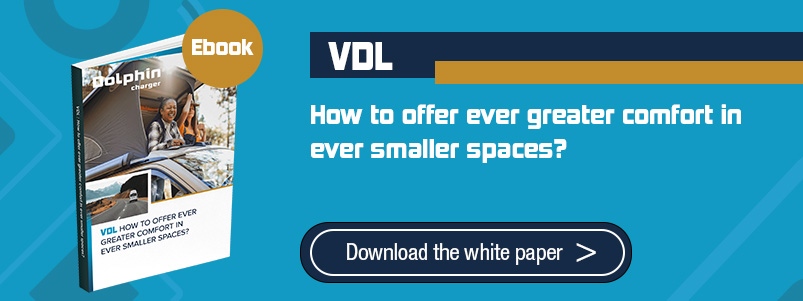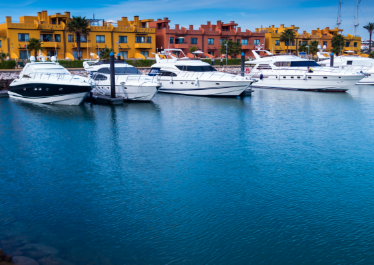What type of motorhome battery should I choose?

Lighting, refrigerator, pump, ventilation, power supply for electrical outlets... Batteries play an essential role on board a recreational vehicle. For motorhome enthusiasts, the ability to enjoy good electrical autonomy is at the very heart of the concept of mobility and freedom offered by the VDL. In this respect, the choice of battery type is essential. Several options are available on the market between the oldest battery technologies - which have proved their worth but whose performance leaves something to be desired - and the most recent technologies, such as lithium batteries. What are the advantages and disadvantages of each type of battery, and what criteria should you use to make your choice?
Starter batteries VS auxiliary batteries
Let's start with a reminder:
- The starter battery keeps the vehicle running smoothly
- Auxiliary batteries provide the power supply for the motorhome's various equipment. They recharge while driving or when the vehicle is plugged into the mains.
Each auxiliary battery has a specific capacity, expressed in ampere-hours (Ah). The number of Ah determines the battery's autonomy when not under load. The range offered can vary greatly depending on the type of battery chosen.

The different types of motorhome battery
1. Lead-acid batteries
Affordable and readily available, lead-acid batteries are widely used in leisure vehicles. Although they offer a high discharge capacity, they require regular maintenance, particularly maintaining electrolyte levels and adequate ventilation, to avoid potentially dangerous gas emissions. Lead-acid batteries also have a shorter service life than other types of batteries. Simple and robust, lead-acid batteries with free electrolyte technology offer autonomy ranging from 50 to 140Ah and make good starter batteries.
2. Gel and AGM batteries
Absorbent gel batteries (AGM) are a popular option for motorhomes due to their durability and ease of use. These sealed batteries are maintenance-free and vibration-resistant, making them ideal for leisure use. AGM batteries also offer good discharge capacity, rapid recovery from deep discharge, and long life, making them a reliable auxiliary battery choice for motorhome enthusiasts. AGM & Gel Series batteries offer degrees up to 240 Ah.
3. Lithium batteries
Lithium batteries have gained popularity in recent years due to their many advantages. Lightweight, compact, and with a longer life than other battery types, they offer greater energy efficiency. Lithium batteries can be discharged to a lower percentage without suffering damage, so that you can use more stored energy. However, lithium batteries are generally more expensive than other options, which may be a factor to consider.
Examples in this category include lithium-iron-phosphate (LiFePO4) batteries, which boast excellent service life, high discharge capacity, and are maintenance-free.
Which motorhome battery charger to choose?
Once you've identified the best type of battery, you need to choose the correct charger. Of course, the charger must correspond to the selected technology. The easiest way is to opt for a motorhome battery charger with charging profiles adapted to the different battery technologies. This way, the user can change the battery type without worrying about the charger.
Then there are the special features of recreational vehicles. The particularity of a motorhome is that every cm3 counts! One of the most important criteria when choosing a battery charger is compactness. The battery charger must be compact and silent so as not to detract from the experience on board the motorhome. Similarly, choosing a communicating charger to be integrated into the vehicle's home automation system is best. In this way, the user can benefit from all useful information from the vehicle's main control screen.
Specializing in recreational vehicles, Dolphin Charger offers industry professionals its INTEGRAL charger, the only product on the market to combine three useful functions:
- A 220-volt 15-amp charger
- A dual output booster 25 amp + 15 amp
- 250-watt MPPT regulator
Read also - Integral: how Dolphin® Charger developed the ideal product for its RV’s customers
Compatible with all battery technologies, the INTEGRAL charger is quick to install and provides a unique dual battery/fridge output on the market. It's an ideal solution, whatever the battery technology you choose. Would you like to find out more about this product? Just contact us!



